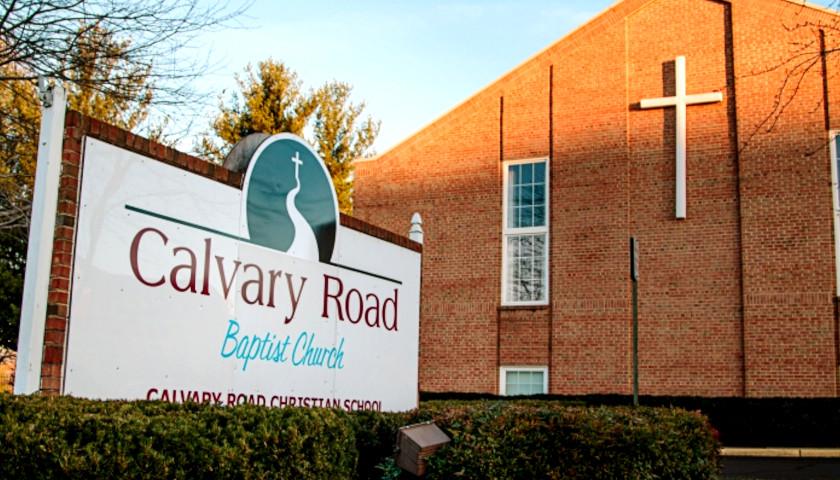Dominion Energy, the Attorney General of Virginia Office, and other stakeholders have announced a tentative settlement agreement over how the utility will pay for the Coastal Virginia Offshore Wind (CVOW) Project.
The agreement, which still needs approval from the State Corporation Commission, would allow the utility to bill some cost overruns in the project to consumers but sets a cap along with some protections for the utility’s shareholders who would otherwise bear the burden. Attorney General Jason Miyares said that’s a win for consumers, and the utility said the agreement balances financial impacts.
“I am pleased that we have achieved consumer protections never seen before in modern Virginia history,” Miyares said in a press release. “For the first time Dominion has significant skin in the game to ensure that the project is delivered on budget. Should the project run materially over budget, it will come out of Dominion’s pocket, not consumers’. If approved by the State Corporation Commission [SCC], this agreement provides first-of-its-kind protections for Virginia consumers. A wide range of stakeholders support this agreement. I especially want to thank the Sierra Club and Appalachian Voices for joining, as well as Virginia’s largest private employer, Walmart. This landmark agreement means that Virginia will be a national leader in offshore renewable energy for years to come and most importantly in a fiscally responsible way.”
Dominion Energy CEO Robert Blue said in a press release, “Given the now-significantly de-risked status of the project’s development and given its continued ‘on-budget’ status, we feel that this settlement reflects a balanced sharing of financial impacts in what we currently see as unlikely scenarios of material delays or cost overruns.
“The agreement provides for initial cost sharing between customers and Dominion up to $11.3 billion. If the construction costs fall between $10.3 billion and $11.3 billion, Dominion and consumers will share those additional costs evenly. If the construction costs of the project exceed $11.3 billion, Dominion is required to pay those additional costs in full,” Miyares’ release explains. “In the unlikely event that the project’s construction costs exceeds $13.7 billion, the project will be put back before the SCC for a further determination of viability and/or cost allocation. This feature of the agreement protects all stakeholders from catastrophic cost overruns.”
CVOW is mandated by the Virginia Clean Economy Act. In August, the SCC approved Dominion Energy’s application to build the 176-turbine project and approved the utility’s request to raise rates to help pay for the project. But the SCC included a performance standard that protects consumers from increased costs if CVOW underperforms and Dominion Energy has to buy outside energy. However, Dominion Energy responded to the performance standard, calling it “untenable” and saying it placed a significant amount of risk on the utility shareholders.
At the time, the OAG advocated for the performance standard to protect consumers, but the new agreement didn’t include the performance standard, according to a Dominion Energy press release.
While Youngkin and his administration have been critical of efforts to force Virginia to eliminate fossil-fuel-powered electricity, they’ve advocated for an all-of-the-above energy policy. That’s a position that has earned frustration both from Democrats, who criticize Youngkin’s attacks on renewables and from hard-line Republicans.
On Monday, Stephen Haner, a senior fellow at conservative Virginia think tank the Thomas Jefferson Institute for Public Policy, criticized the new agreement for not protecting consumers.
“The State Corporation Commission (SCC) sought to protect Virginia ratepayers from the risk. That was the point of its imposition of a performance standard on the project tied to its overall energy output. That is the risk Dominion’s leadership refused to accept, threatening to kill the $9.8 billion project entirely. It was not an idle threat,” Haner wrote in The Jefferson Journal. “Now Virginia Attorney General Jason Miyares (R) has a new proposal which protects Dominion and its shareholders from that risk after all, putting it back squarely on the utility’s 2.5 million customers. Instead, the person charged by law as the protector of Virginia consumers is focused on the risk of construction cost overruns.”
– – –
Eric Burk is a reporter at The Virginia Star and The Star News Network. Email tips to [email protected].
Photo “Jason Miyares” by Jason Miyares. Background Photo “Wind Farm” by Fanny Schertzer. CC BY-SA 3.0.








